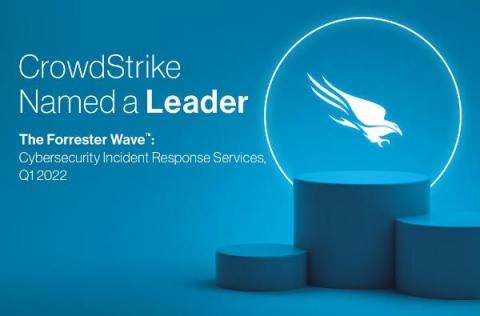Security | Threat Detection | Cyberattacks | DevSecOps | Compliance
Latest News
Introducing 'The Future of Security Operations,' our brand new podcast series
Today we’re excited to announce our new podcast – 'The Future of Security Operations.' Our first episode is with MongoDB’s CISO Lena Smart, and every other week from now on, we’ll have a new episode with another expert. I wanted to take a few minutes to explain why we’re launching this podcast and what you can expect to gain from listening.
Operationalize Risk and Compliance with the Reciprocity ROAR Platform
CrowdStrike Named a Leader in The Forrester Wave: Cybersecurity Incident Response Services, Q1 2022
CrowdStrike has been recognized as a Leader in the Forrester Wave™ for Cybersecurity Incident Response Services. When it comes to incident response (IR), time is of the essence. The longer it takes to detect threat activity, investigate an incident and remediate systems across highly distributed environments, the deeper into the threat lifecycle the adversary gets.
How to mitigate PetitPotam NTLM Relay Attack
How Tripwire ExpertOps Can Help Solve the UK's Cybersecurity Challenges
Many UK business and technology executives aren’t hopeful about their digital security going into 2022. In a survey of 3,600 business and technology executives, of which 257 were from the UK, PwC learned that a majority (61%) of respondents expected to see an increase in reportable ransomware attacks next year.
6 Critical Areas of Cloud-Native Security That Are Influential in 2022
Cloud computing has emerged as the go-to organizational workload choice because of its innate scalability and flexibility. However, cloud computing still comes with some security risks. Examining cloud security is an important part of adopting this new technology. Presently, cloud-native security is experiencing changes and innovations that help address security threat vectors.
What is Cybersecurity Maturity Model Certification 2.0 (CMMC 2.0)?
Five worthy reads: The emerging threat of weaponized artificial intelligence
Illustration by Dorathe Victor Five worthy reads is a regular column on five noteworthy items we discovered while researching trending and timeless topics. In this week’s edition, let’s explore how artificial intelligence and machine learning are weaponized by hackers to fuel cyberattacks. AI and ML are conquering the world at a rapid pace. AI has made life much easier. In many instances, it speeds up manual processes, reduces costs, and eliminates manual errors.
Cyber Attackers Leverage Russia-Ukraine Conflict in Multiple Spam Campaigns
The Trustwave SpiderLabs email security team has been monitoring the ongoing Russia-Ukraine crisis to ensure that our clients are protected and aware of any imminent threats. This research blog captures some of the phishing email threats we have discovered. Whenever there is a global event, threat actors are sure to take advantage of the situation. As the war between Russia and Ukraine continues, cybercriminals are pumping out spam emails that use the crisis as a lure.










